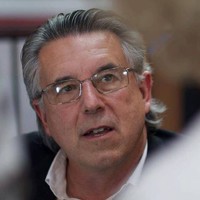By Steve Flairty
NKyTribune columnist
While recently reading about Mary Breckinridge’s amazing Frontier Nursing Service (FNS) and specifically the work of the organization’s volunteer Courier Program in their early days, I thought about what it means to be truly service-minded.
I’ve concluded that a good life doesn’t always consist so much in doing things that one HAS to; often it’s doing things one does not have to do. The idea comes to me not only from observing those who are a part of the FNS’s activities. It also comes from having many people help me along my life’s path—doing things they really didn’t have to do or weren’t necessarily expected to do, but they did out of a sense of being a good force for a better world.
But first off, I’ll share a bit about Breckinridge’s Couriers (her organization capitalizes the word.) Breckinridge answered a well-researched need for nursing services in eastern Kentucky by establishing the Kentucky Committee for Mothers and Babies from the period of 1924 through 1927. In 1928, the organization’s name was changed to the Frontier Nursing Service. FNS also initiated their all-volunteer Courier Program that year, an important measure crucial to its long-term existence.
Couriers would help nurses in the Kentucky mountains with everyday chores, including delivering communications and supplies to clinics, caring for the horses that provided much of the transport in the mountains, and assisting with home visits. They would escort FNC guests safely through remote terrain, deliver medical supplies to remote outpost clinics, and help nurse-midwives during home visits and births. Over the organization’s history, 1600 have served as Couriers, though the use of horses phased out and Jeeps and other vehicles took over as transporters.
Those early Couriers had a diversity of motivations for taking on the time-consuming, hard work of maintaining the animals for efficient service and doing a myriad of other chores that enabled trained nurses and midwives to be used most effectively. According to Anne Cockerham’s book, Unbridled Service: Growing Up and Giving Back as a Frontier Nursing Service Courier, 1928-2010, the reasons for coming to a poor and remote area of Kentucky to serve as Couriers were varied: some sought adventure in the great outdoors, some simply possessed a lofty goal of serving mankind, some saw it as a way to fill unoccupied time, and others wanted to learn more about healthcare.
Whatever the reasons, they likely didn’t come to be Couriers because they “had to.” The work of the Couriers–still a vital part of what has evolved from Frontier Nursing Service into today’s Frontier Nursing University, based in Versailles, has made all the difference in untold lives. Visit frontier.edu for further information on the Courier Program.
That said, many people have served as my personal “Couriers,” doing things for me they certainly didn’t have to do.
Terry and Charlene Kennedy, along with George and Nellie Shumate, drove miles out of their way to get me, a teenager, to Plum Creek Christian Church on Sundays. John Gilliam was a fifth-grade teacher whose efforts got me an autographed picture of a noted basketball star who grew up in his town, maybe a small thing but exciting for a young man. George Schnorr served me as a great confidant as I transitioned from college to working life. A high school teacher profusely corrected my writing mistakes but helped me feel like I had a future as a writer. My own brother, as I’ve discussed in this column previously, did many things for me above and beyond what would be reasonably expected, and those memories live with me daily after his death a few years ago.
All those kind actions were not things “they had to do”… but the fact they did so left lasting imprints on me. Might I, and we, be inspired to do likewise?
Another one of those authors I consider a Bluegrass treasure has a new book coming out in March 2021. Lexington’s Georgia Green Stamper, raised in Owen County and attuned strongly to that small community in much of her writing, has a new offering. Small Acreages completes a trilogy of connected essays told in her unique Kentucky voice. Hailed by critics as “a master of the brief meditation, the humorous glance, and the short historical sketch,” she secured her place in Kentucky’s stable of writers with her first two award-winning books, You Can Go Anywhere and Butter in the Morning.
In Small Acreages, readers are returned to Georgia’s Eagle Creek world and its colorful characters, but her voice has deepened with time and widened to include her journey beyond Natlee. Reflecting on her life’s journey, she “hopes to add a handful of words to the conversation about what it means to be human.” Her wry humor persists, however, cutting the absurd down to size – and reminding her readers that “you might as well laugh.”
Georgia is also a popular speaker and a contributor to Kentucky Humanities magazine.




























